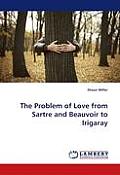I’ve come across another inconsistency. Let me be clear. I’m not saying that the pro-life movement is itself inconsistent. Nor am I saying that anything within environmental ethics is inconsistent either. Taking them both together, however, is where the inconsistency lies if they hold on to the benefit of the doubt argument.
Let me start with the pro-life argument using the benefit of the doubt argument. The idea is we don’t know when a fetus becomes a person during the whole gestation period. So why not give it the benefit of the doubt and say that it’s a fetus at conception? That’s the main argument. The focus with this is that it’s possible that the fetus is a person at conception, but since we don’t know it, it would be better to call it a person at conception because if we abort the fetus later in the gestation period and it turns out that it was actually a person earlier on, then legally (and morally) speaking, we’ve murdered a person.
Now let’s bring in the environment ethical attitude. Most people who hold on to a pro-life attitude usually hold to the idea that there is no problem with the environment or that global warming is possibly untrue. So here’s where the inconsistency comes in. Global warming may not be true. Therefore, there’s no need to help out or save the environment. But wait a minute. Why not bring in the benefit of the doubt argument here like this: Global warming may not be true, but why not give it the benefit of the doubt and act as if it is true? That way, we can still act as if to save the environment. After all, if we mess up the environment anymore, and it turns out that global warming is true, then we’ve been messing up the environment through our own ignorance. Why not say that if we apply the benefit of the doubt argument to one side, why not apply it to both?


I suppose that makes sense. The implications of changing the way we utilize fuel to the standards necessary to negate so called man made global warming are much more complex and dire than allowing a indisputably living organism (whether a person or not)to live. At least in my opinion.
Your argument does make sense though, in terms of a thought experiment and nothing more.
What thought experiment? This isn’t a thought experiment. This is a logical point. What I’m saying is that if you believe in the benefit of the doubt argument for one, then you must believe in it for the other. If not, then you’re being inconsistent. The only option is to hold the benefit of the doubt argument for both of them, or neither of them. There is no thought experiment.